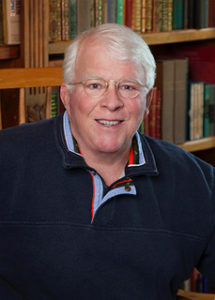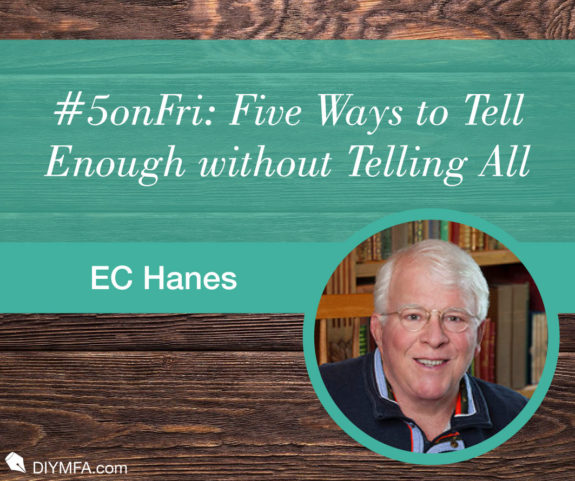There is often a temptation to give your reader more than they really need, or, more importantly, want to know. For example, you describe a garden that is just coming into bloom and then go into minute detail about the flowers and trees. Your description includes the botanical names of three species from one genus, and four from different genera, then comes a recitation about the vibrant colors of the floral display, the majestic forms of the tree trunks, the smells, and finally the painful and simultaneously blissful memories surrounding this serene environment.
None of this descriptive prose advances the story one inch.
A teacher once said to me, “Redge, if you decide to write a story about a bear….bring on the bear.”
1. Write, but write what?
Let’s back up a bit. The first thing to decide is what you’re going to write.
What am I good at? What gives me the most satisfaction? A poem, an essay, a short story, a novel, or some other literary form.
This is not a trivial decision. While this might seem obvious, it is too often ignored.
An honest evaluation of one’s talent and inclinations can be painful. Some people just can’t tell a joke, and yet they try. Some people say there’s a novel within them, but they have little imagination.
2. Are you a storyteller or are you a singer of words?
Are you in love with the sound and choice of your words or do you want to tell a story that carries your reader on an exciting ride?
Obviously, great storytellers can be purveyors of beautiful words, but the words shouldn’t get in the way of the story. Some might say to look at Faulkner versus Hemingway. One drew complex character and location descriptions into beautiful sagas. The other slapped a bear around in the first chapter and didn’t let go until the end.
A current trend is to write short stories that begin and end without going anywhere, but arrive there via some beautiful prose.
3. Ordinary or erudite?
Prose is defined as “The ordinary form of spoken or written language, without metrical structure, as distinguished from poetry or verse.”
Okay, now we have the dictionary version, but what constitutes “ordinary”? What is the ordinary form of spoken language and what difference does it make?
Faulkner once said, “Hemingway has never been known to use a word that might cause a reader to check with a dictionary.”
Hemingway replied, “Poor Faulkner, does he think big emotions come from big words?”
Both men are recognized as brilliant authors, but they chose different paths.
Let’s say you decide, as I did, that you want to tell stories, and that you want to tell stories about interesting, difficult, simple, complex, loving, hateful people. You want your reader to laugh at your jokes, cry when crying is called for, and think when thought is required. You want your reader to stay in the story, to relate to the people, and for me, that means limiting the time spent thumbing through a dictionary. The irony is that one of Faulkner’s best stories was called “The Bear.”
4. Where’s the meat?
So, what will make the reader become involved? Interesting people, of all types, plus a storyline that is both believable and unbelievable.
No one really believes that Bond could survive hand to hand combat against twenty trained attackers, but what the hell, it’s a great story, which finally gets to the point of this essay—bring the reader along with you but don’t insult him or her with too much self-satisfying descriptive prose.
The reason most people think that movies adapted from books are less enjoyable than reading the book, is that movies don’t leave anything up to the viewer’s imagination. Roger Moore ain’t James Bond! Tom Cruise ain’t Jack Reacher! That’s not what Goldfinger’s farm looks like!
5. Let’em find their Wonderland.
The world a good writer creates is not just their world, but their reader’s. A good story allows the reader in; it encourages the reader to create their own world because that world is the most realistic and exciting. The writer is the guide who points out areas of interest but lets the reader fill in the blanks.
A teacher of mine once said, “It’s okay to feed your reader, but don’t chew for them.” Don’t tell them every detail about the protagonist, about the garden, about every aspect of the scenery.
Don’t be a movie, be a book.
Tell us in the comments: How do you balance telling enough versus telling all?

Eldridge C. Hanes; Redge to his friends; was born in Winston-Salem, North Carolina, and graduated from Woodberry Forest School in Orange, Virginia, and then from Duke University in 1967 with a BA in Economics. He graduated from the Army Combat Engineering Officer Candidate School at Fort Belvoir in June of 1968 and served three years of active duty, the last of which was in the Republic of Vietnam and earned him the Bronze Star. After the army, Redge worked seven years for Hanes Corporation and then left to start Xpres Corporation, which eventually became The Russ Companies, for whom Redge served as chairman for three years before retiring in 2011. In addition to his business interests, he has served on a number of boards in the education, environmental and arts fields. Redge has published two novels, Billy Bowater and Justice by Another Name, in addition to contributing essays and articles to various publications. His essay “Helen of Marion” appeared in the recent UNC Press anthology, Mothers and Strangers: Essays on Motherhood from the New South. Redge has been married for fifty years to Jane Grenley Hanes. They have a son, Philip, and a daughter, Lara, and are grandparents of five lively and beautiful grandchildren.







